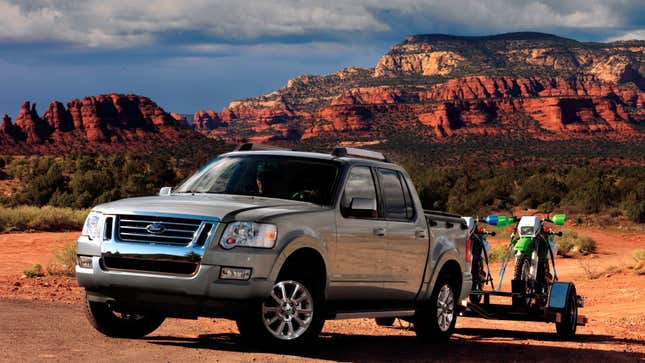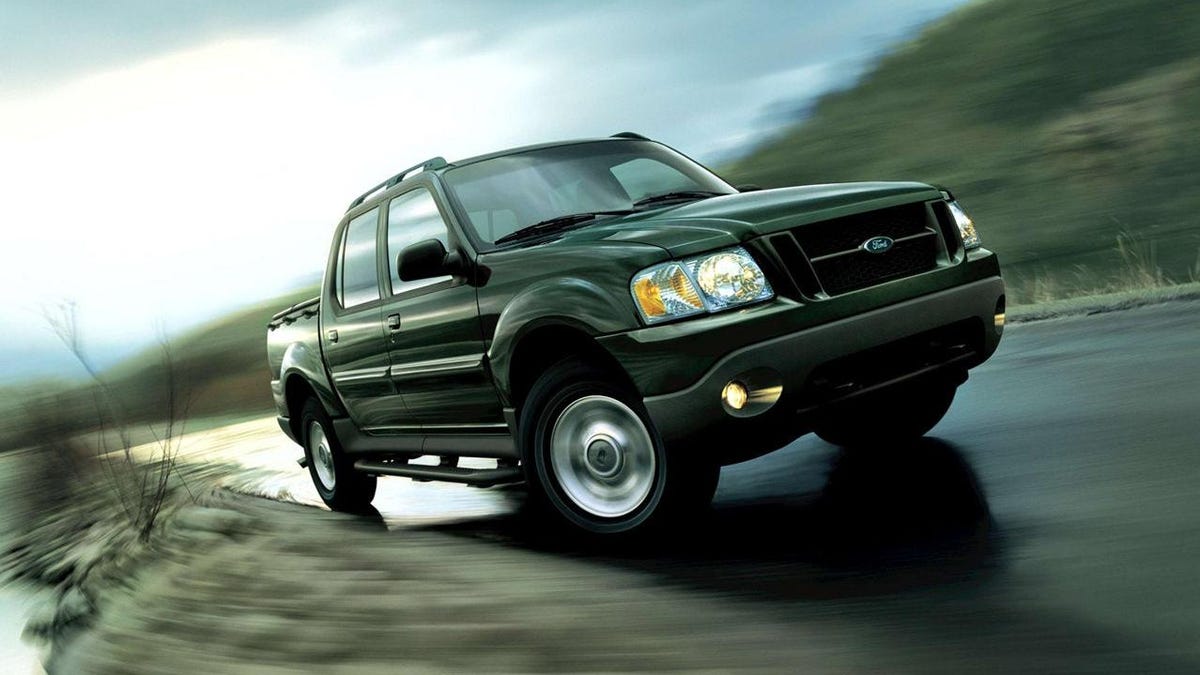The Ford Explorer Sport Trac is possibly one of the most forgettable vehicles that Ford has ever made. The Sport Trac was only around for two generations, and there was a curious gap in the available model years for 2006, but the truck was more interesting than it seems at first glance. It was Ford’s first midsize truck with four doors, and the last of its U.S. pickups with a very “trucky” feature: cargo tie-downs, or anchor points, on the outside of the bed.
Ford insisted the Sport Trac was a part of the Explorer SUV family despite clearly being a midsize double cab truck — or a SuperCrew, in Ford’s lingo — and it slotted between the extended cab Ranger and the double cab F-150. It’s possible that Ford tried to differentiate the Sport Trac from its bestselling full-sizer in order to stop it from cannibalizing any F-150 sales, but that seems like it would have been hardly necessary given the F-150’s market dominance.
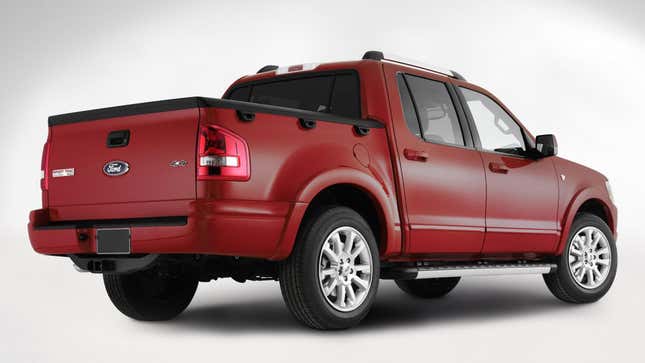
The Explorer Sport Trac shared some parts with the Ford Ranger, but it had Explorer-derived styling and was built on the Explorer platform, which, confusingly, was once Ranger-based. As our friends at The Autopian explain, the Sport Trac was built on the platform of the second-generation Explorer but combined elements from the Ranger, F-150 and Explorer, giving the SUV a longer wheelbase to accommodate an open bed.
That bed was just over four feet long, and it had a swing-out extender to stretch its usable length by two feet. The Explorer Sport Trac was never sold as a work truck, however, which is why the outer tie-downs seem like an odd choice. If the Sport Trac was meant to be all play and no work, then why would Ford give it outer anchor points, which are common on work trucks around the world?
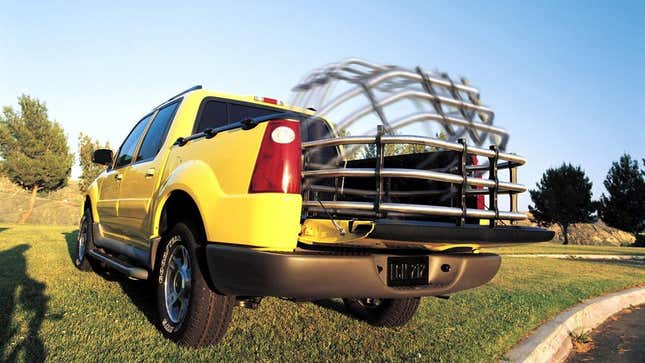
Modern compact and midsize trucks sold abroad, like the Nissan NP300 and Chevrolet S-10 Max, still have the tie-downs, which seem quite useful. The new Ford Ranger and VW Amarok have similar anchor points along their bed rails. But these are not common at all on American trucks, let alone on one sold until 2010. When you look at the tie-downs and styling of the Sport Trac, it’s jarring to see a modern truck with such an old quirk, but it’s a welcome surprise.
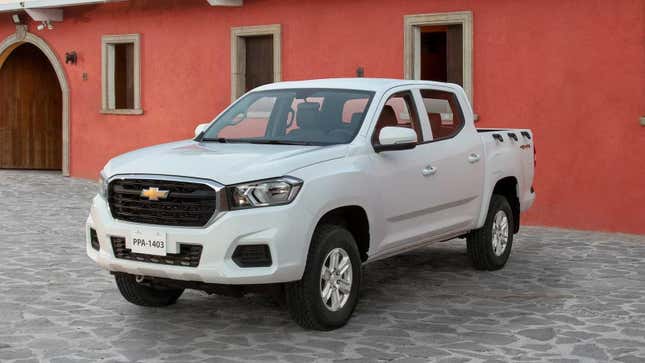
The anchor points should look out of place, but they work well with the Sport Trac’s styling. It makes me wonder why current trucks don’t have outer tie-downs, because these can’t be useful only on work trucks. The Ford F-150 “Flareside” had the same tie-downs at one point, but that bed style was discontinued on the F-Series before the Sport Trac was phased out.
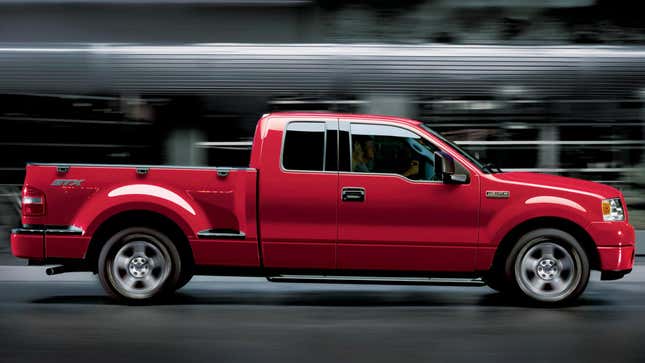
The Sport Trac also came with another beloved feature of older Ford models, with the inclusion of the “Breezeway” rear window, which rolled down automatically at the touch of a button. Toyota enthusiasts will recognize this feature as a fan favorite on the full-size Tundra, but the Sport Trac had it, too.
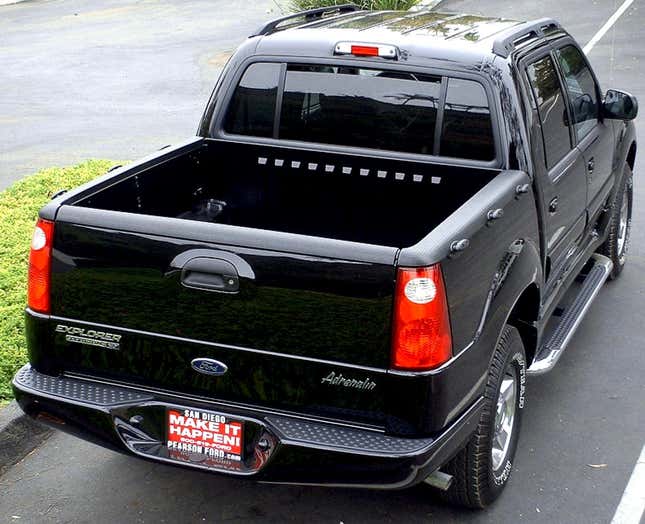
The entire decade of the aughts was a strange time for trucks, when automakers were willing to try different things, like with the release of models such as the Lincoln Blackwood, Chevy Avalanche, Honda Ridgeline and Hummer H3T. No matter the generation, the Ford Explorer Sport Trac is another unconventional pickup that’s mostly forgotten, but it was quirkier than many of us remember.
